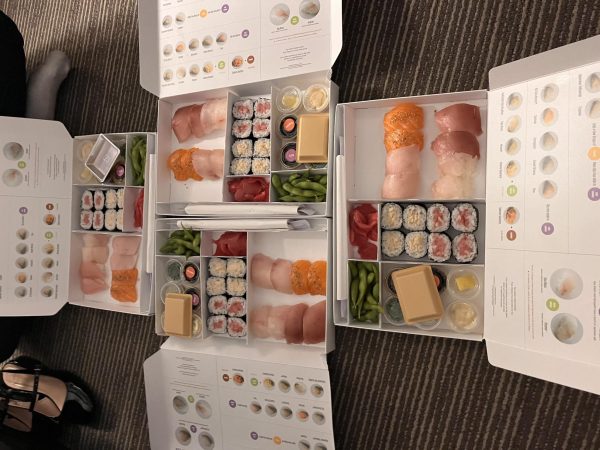Editorial: Pursuit of Success Vs. Happiness
The main campus library at Ivy League member Columbia University at dusk. Some believe that getting admitted into this university, which boasts a 5.8% acceptance rate, is a traditional sign of success.
High School seniors are at the peak of the college application season. Around the world, millions of people are condensing their personas into a few hundred words for their college essays. They market themselves as the best possible candidate: a child genius at 17, a future president, or even the youngest member of the United Nations International Children’s Emergency Fund (UNICEF). Each year, the expectations and seemingly unachievable standards for applicants rise, and their mental well-being declines. Students will play sports, join clubs, and do community service solely to improve their chances of admittance into a prestigious university. Why is this paradox such a harmful process for individuals’ mental health and self-esteem? Is going to a highly selective college really worth it?
College applications are a microcosm of society’s emphasis on productivity and fiscal success. The falsehood that hard work will bring about success, and ultimately, happiness is at the heart of our Nation’s founding and ethos: the American Dream. American institutions, such as education, place importance on climbing the socioeconomic ladder, as those with the ability to pay more are often those who receive quality education and are provided with more opportunities. Joy remains an afterthought for many Americans. A psychological study states that when children are encouraged to explore options that would conform them into a socially-accepted ideal of success, they are discouraged from doing what naturally brings them joy. This widely accepted theory of chasing success instead of joy extends to college applications.

According to psychological findings, the pursuit of success does not often bring about happiness. Finding what brings us joy is a much more effective way to achieve happiness, and this can even lead to success. Thus, we would like to offer a new framework for how to approach this pursuit of success: following what brings you joy is the ultimate goal and sign of success. We must make this shift in mindset to prioritize happiness. As humans, society encourages us to pursue success. We are always chasing goals and adding new ones once these are completed, yet come to the ultimate consensus that we are never fulfilled. Rather than conforming to what society says will bring you success or happiness, follow what brings you joy wherever you go. This same concept should be applied to college applications, in order to ensure that you end up at a place where you can be joyful, and in that sense successful.
While society asserts that attending an ivy league school will lead to a more profitable career, it is more fulfilling to follow the path of your choosing. Whether that means taking a gap year, attending a community college or entering the workforce, it is crucial that individuals take the path that is best suited for them. Recent controversies and legal battles surrounding highly selective schools, such as the Supreme Case regarding Harvard vs. Fair Admissions, and Stanford’s release of statements apologizing for their discrimination, further highlight the need for students to question the legitimacy and values of these institutions.

Océane Jones is an Editor-In-Chief of The Skier Scribbler. As an AHS senior, this is her third year on The Skier Scribbler In her free time, Océane enjoys...

Océane Jones is an Editor-In-Chief of The Skier Scribbler. As an AHS senior, this is her third year on The Skier Scribbler In her free time, Océane enjoys...



























